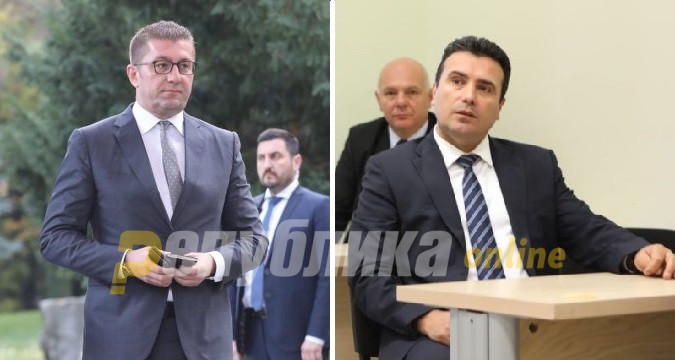SDSM party leader Zoran Zaev opened the possibility of another meeting of top party leaders with Hristijan Mickoski from VMRO-DPMNE, to discuss the law on state prosecutors. Zaev re-opened the push to adopt the law after EU Commissioner Oliver Varhelyi announced it will be important to adopt the matter for Macedonia to be able to open EU accession talks, in light of the unprecedented meltdown of the judiciary after the Katica Janeva scandal.
Our working groups are engaged on the draft law. This is an important issue. The law needs to be adopted, if not before the April elections then after them. I will sit down with Mickoski if need be, Zaev said.
He repeated his position that the Special Prosecutor’s Office which Janeva led is now dissolved. Janeva did this by sending a set of highly controversial and disputed letters from prison, where she was detained on charges of high level corruption and abuse of office. Zaev’s SDSM party was visibly relieved at this outcome, which allows it to continue persecuting former VMRO-DPMNE officials using the much publicized charges Janeva prepared against them. But the entire construction is up in the air without a law adopted with the consensus of the major political parties and Zaev doesn’t have the necessary majority to adopt a systemic law that re-organizes the judiciary. Previous talks were stalled when it became clear that Zaev is not willing to allow the opposition to appoint the next Special Prosecutor – a position Zaev held while SDSM was in the opposition. And, as a second option, even if the opposition was able to appoint a prosecutor who would focus on wrongdoing by top Government officials, Zaev demanded that his nearly three year term in office is exempt from the mandate of the next prosecutor.
Zaev also raised the prospect of adopting the law with the help of smaller political parties and a group of former VMRO members of Parliament who were blackmailed into defying the party with the help of criminal charges tactically initiated by Janeva and other prosecutors loyal to Zaev, but it’s unclear whether something like this could be organized before the April 12 elections, if at all.
Discussing the post election situation, Zaev, whose party is down in the polls and lags behind VMRO, said that he will be open to a coalition with all parties, other than VMRO. Given the plight of his party, Zaev was pushing for a pre-election coalition with some of the smaller ethnic Albanian parties or even with DUI, but it’s unclear how viable these options are.




Comments are closed for this post.